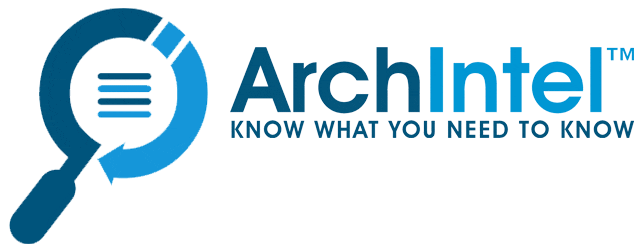Jennifer Kauffman, vice president of Business Development at CyberCore Technologies, recently spoke with ArchIntel regarding the challenges within competitive intelligence (CI), how to develop a database to store the information collected and how to find and train an insightful CI team.
“The triangulation and the credibility of your sources is probably the biggest challenge when it comes to competitive intelligence and you have to take the emotion out of it.”
ArchIntel: What are the common challenges you face from your clients and competitive intelligence?
“The first and biggest thing to focus on is validating information. I focus on the federal government, so we have no shortage of rumors and unsubstantiated information.
You must be able to bring a skillset of validating the information that you come across. If you can’t triangulate information, then we make sure to mark it as rumor. That is primarily a challenge in informal competitive intelligence gathering scenarios.
The next step is to figure out how much information is out there. Competitive intelligence comes from all angles. From our competitive intelligence or business development team to our program managers and our staff working directly on the program, the source of information is never ending.
In addition to the usual media sources our employees, our industry partners and ‘competimates’ are a wealth of information. Again, you always need to research and validate the information, no matter the source.
When hiring staff who will have the responsibility to provide competitive intelligence, I look for individuals with vast experience from a variety of companies and even industries. Personally, I have worked in large and small companies spanning original equipment manufacturer (OEM) hardware, software and system integrators.
This diversity provides understanding and perspective, but more importantly, intimacy and relationships. I regularly leverage my relationships to share and validate information, gain insight and perspective from those closest to it.
I also look for a lot of what I would call ‘soft skills’ for a member of our competitive intelligence team because they need to be inquisitive with an analytic frame of mind and have tenacity. An analyst needs to take what they find, not take it at face value, and try to prove it and provide sources.
You trust everything, but you also verify everything. All of the information gathered will drive business decisions to pursue opportunities and size up the competitive landscape.”
ArchIntel: How do you develop a competitive intelligence database to create educated projections?
“You develop a database, or a library of information collected from all the sources I previously mentioned. You need to record that information so you are able to refer back to it when the time comes. This source and timing of information proves vital in our industry and across our industrial base because the competitive landscape and our customer organizations are always changing.
There is no shortage of mergers and acquisitions in our industry today. The database you create and manage will be key in providing the lineage of programs, customer contacts as well as the companies and their capabilities. For example, Company X buys Company Y. Company Y had recently acquired three software companies before Company X came in to buy the organization.
On the surface, Company X didn’t appear like a worthy competitor. However after analyzing the data you determine, Company Y’s software acquisitions put them in a strong position to win. Don’t fool yourself, it isn’t easy keeping up with who bought who and when. That is where a strong CI database is integral to your team’s success.”
ArchIntel: What are essential skills to achieve success in the field to build, recruit and manage a strong competitive intelligence team?
“A good CI team has a diversity of experiences. You need members who have many years of experience and those newer to the field. Let both learn from each other. No matter the years of experience, I look for aggressive, hungry, inquisitive individuals who will take the available information and think to themselves, “Okay, I understand the data I have found, BUT where do I go from here? This cannot be all the information available. A good CI analyst is never satisfied and is always forward-looking, forward-thinking.
It’s that inquisitive nature that pulls a thread until it no longer bears fruit. An analyst also may need to do a complete 180 and then they’re back where they started at the beginning; which actually a good thing to be able to say, ‘Okay, I exhausted all of the sources available and provide that data with confidence.’”
ArchIntel: Is there ever a problem presented where you have too much research, especially with the immense amount of data available?
“At some point and time you have to say enough! The intelligence you have gathered is enough information to make sound business decisions. The data will change over time but in government contracting, we have deadlines, due dates and milestones to meet.
There will always be new information available. However, you must know when to stop or you will paralyze your organization’s ability to make a decision.”

